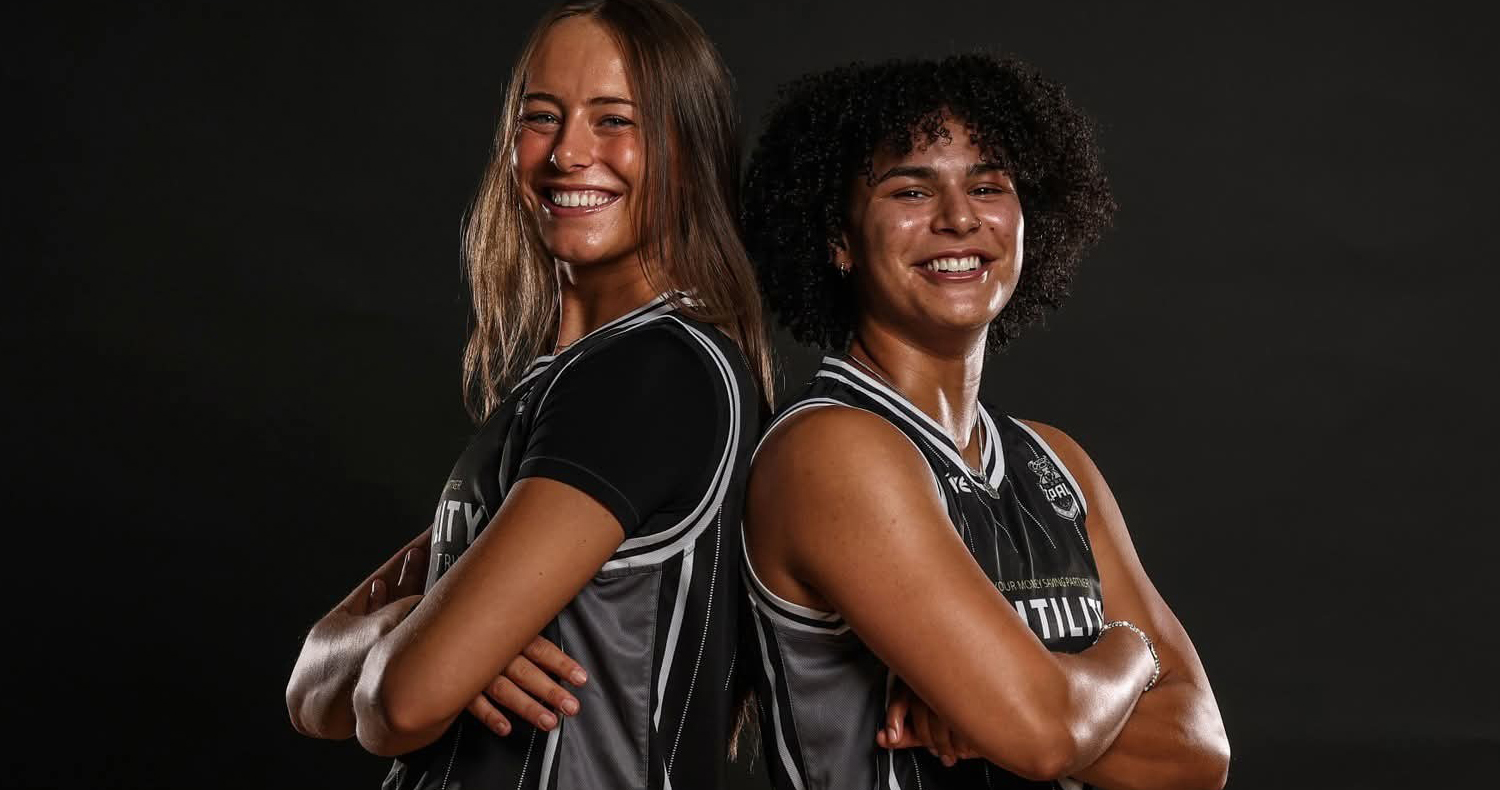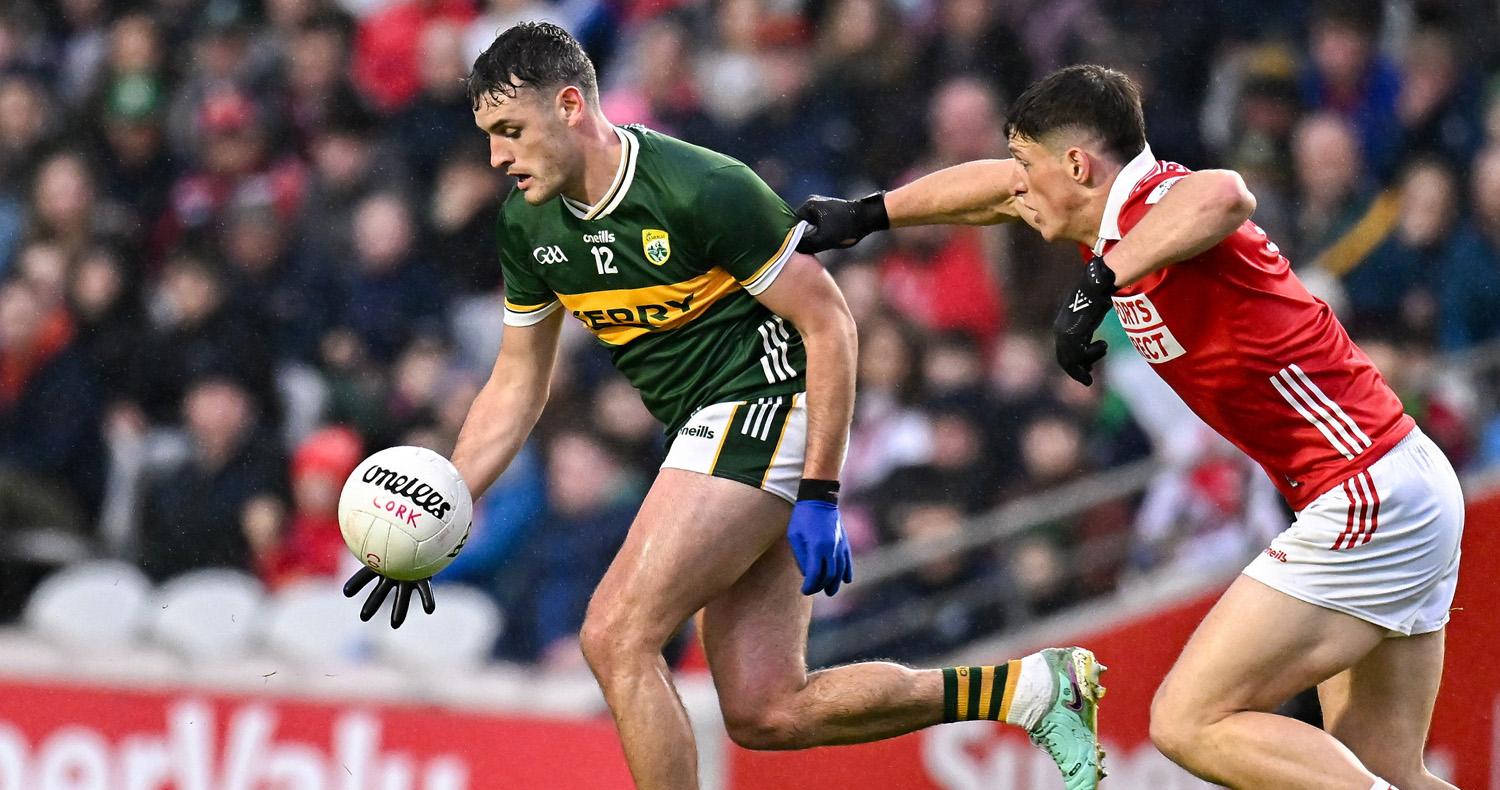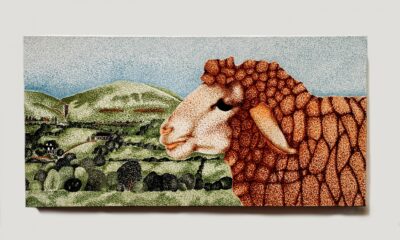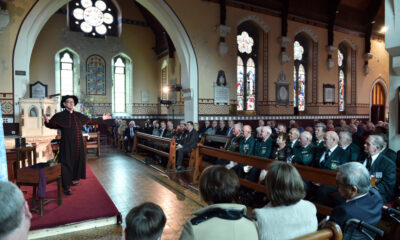Sport
What went wrong: 12 key factors that led to Kerry’s shock defeat to Cork

A
As Luke Connolly’s ‘Hail Mary’ of a kick hung high in the dark Cork City sky, time, for just a second, stood still. Thirty tired footballers, drenched to the bone by incessant rain, arched their necks and gazed towards the heavens. Cork needed a miracle to come down with that ball. For whatever reason, perhaps just for the hell of it, the gods obliged.
It was a privilege, if not a pleasure, to bear witness to what happened next. Mark Keane’s goal rocked Gaelic football to its core; it will surely be remembered as one of the greatest plot twists in the history of the sport. In an instant, it turned saints to sinners, and losers to winners.
For years and years, we sat at the top table and looked down at Cork. We patronised them. Pitied them, even. In one swift catch and kick, Keane made fools of us all.
The most sadistic mind couldn’t think of a sadder end to this annus horribilis as far as Kerry folk are concerned. The question, though it may pain us to ask it, is ‘what went wrong?’
1. The conditions. Páirc Uí Chaoimh may have been more or less empty on Sunday but at stages the noise was ferocious – not from in the stand but from on the stand. As the torrential rain poured down, it smashed against the roof of the new stadium and made a tremendous din. The conditions really were monsoon-like.
Now, the weather was the same for both sets of players, so you might well wonder what significance, if any, the rain could have had. The fact of the matter is that extreme weather often leads to lower-scoring games, and the lower-scoring a game is, the more it suits the underdog. If points are at a premium, it follows that the gap between the sides tends to remain small. This helps the less-fancied team to hang on in there and the longer they hang on in there, the more their confidence grows, as the favourites get nervier all the while.
This is exactly what happened last weekend. It wasn’t that Cork managed the conditions better – the conditions were unmanageable – it was that the type of game the conditions produced suited the team seeking an upset.
2. Cautious team selection. Not for the first time under Peter Keane, Kerry lined out with more backs in their starting 15 than forwards. Half back Brian Ó Beaglaoich played at No. 10, following in the footsteps of fellow defenders Jonathan Lyne and Gavin White who have also lined out in this position during the Keane era.
Kerry also had a midfielder, Ronan Buckley, at 12 (midfielders Jack Barry and Adrian Spillane have been listed in the forwards previously) and a half forward, Dara Moynihan, at 15. That left them with a forward division that featured just three recognised scorers: Seán O’Shea, Tony Brosnan and David Clifford. This was not a new approach by the current Kerry management team and in recent weeks that skilful trio were able to score enough to secure victories over Monaghan and Donegal.
The problem against Cork was that O’Shea (0-2, 1f), Brosnan (0-1), and Clifford (0-4, 1f) were either not allowed or were unable to get points on the board at their usual rate. Kerry got just 0-2 from their remaining three forwards, who in fairness to them were not really there to put the ball over the bar.
A lot of supporters would say that Clifford, Brosnan and Killian Spillane are not the only dangerous corner forwards in the county.
3. Defensive formation. Again, this is nothing new. Keane likes to bring 13-15 players behind the ball and make it difficult for the opposition to break through. But was it the right formation to adopt against Cork?
This set-up has been employed to help protect a defensive unit that had been porous in the years preceding Keane’s arrival. It has worked to good effect in recent matches, but it is also likely that Kerry used this game plan in those fixtures, and perhaps in part in the Cork game, with one eye on an All-Ireland final against Dublin. That is to say that they would have lined out the same way, with everyone back and no one engaging until an opponent tries to break the line, irrespective of who they were playing the last day.
As an exasperated Tomás Ó Sé said on The Sunday Game, “Kerry set up today for a game that’s never going to come”.
There is an argument to be made that this negative formation doesn’t play to Kerry’s strengths.
4. Lack of defensive intensity. Kerry’s defensive formation worked against Monaghan and Donegal for a reason. Players worked tirelessly and put a huge amount of pressure on the ball-carrier (without fouling) whenever one approached their half of the pitch, or the 65. This was not the case against Cork.
Whenever Cork punched holes they were either met with too little resistance or a tackle that resulted in a foul.
On a day when scores were hard to come by, Kerry gave up some cheap frees at crucial intervals. Eight of Cork’s 12 points came from placed balls.
5. Cork aggression. There may not have been a partisan home crowd to cheer on The Rebels but a lot of the shouting heard in Páirc Uí Chaoimh on Sunday evening seemed to have a noticeable Cork lilt to it. Both from the sideline and on the pitch, Cork scores, tackles and turnovers were greeted with guttural roars as the hosts looked to intimidate Kerry at every turn.
At one point, a Cork free was overturned when three of their players converged on Peter Crowley to goad him after he was called for overcarrying. They may have stepped over the line on that particular occasion but in general their in-your-face attitude helped them far more than it hindered them.
Kerry, on the other hand, seemed to be playing with a heavy weight on their shoulders. It was like they were fearful of what might transpire. Cork’s aggressive tone was a contributing factor.
[caption id="attachment_34707" align="alignnone" width="666"] TACKLE: Seán Meehan of Cork is tackled by Kerry's Gavin White during last weekend's Munster semi-final. Pic. Eóin Noonan/Sportsfile.[/caption]
TACKLE: Seán Meehan of Cork is tackled by Kerry's Gavin White during last weekend's Munster semi-final. Pic. Eóin Noonan/Sportsfile.[/caption]
6. Midfield issues. Just as they did in last year’s Munster final, Cork came out on top in the middle third. Ian Maguire and Killian O’Hanlon bested their opposite numbers as David Moran – bar a couple of clean catches – and Diarmuid O’Connor struggled to get to grips with them.
Despite Kerry’s best efforts to crowd this department with auxiliary midfielders, it continues to be a problem area.
7. Missed opportunities. For a team blessed with such amazing attacking talent, Kerry had a nightmare in front of the posts. Seán O’Shea dropped a close-in free short, Tony Brosnan missed chances that he would normally convert, and David Clifford pulled two simple frees wide. You’re talking about three of the most accurate shooters in the country here. Such errant shooting on their part is a complete anomaly.
Diarmuid O’Connor also hooked a straightforward shot and Brian Ó Beaglaoich was unable to convert his side’s clearest sighting of goal.
If Kerry converted even half of these glaring opportunities, they would have won quite comfortably. The final tally of 13 scores from 30 attempts tells its own, brow-furrowing tale.
8. Poor decision-making. Of all the factors that killed Kerry, this might be one of the most significant. Peter Keane lamented the decision-making of his players in his post-match press conference and I thought he hit the nail on the head. Mistakes can and must be forgiven, especially considering the conditions; the ball was like a bar of soap and the surface was like an ice rink. Individual errors were inevitable and excusable.
But what will have frustrated the Kerry manager more than anything was the fact that so many of his players made bad choices right throughout the contest.
They ran into cul de sacs, took the ball into contact, passed when they should have shot, shot when they should have passed... Even David Clifford wasn’t immune to it. At one point he caught a mark close to the Cork posts but instead of taking his score, he played on, got crowded out and fired wide. He was furious with himself. Clifford is not the type of player to make the wrong call, but it was one of those days for Kerry.
The team’s elder statesman and leader, David Moran, was also guilty of some poor decision-making at the end of extra time. When Kerry needed to hold possession and wind down the clock, he took on two shots from distance and ballooned both up into the air. The latter effort handed Cork possession in the final minute, which ultimately resulted in the match-winning goal.
I know it’s easy to say it after the fact and if he kicks the point, he’s the hero, but it has to be said that it just wasn’t the percentage play given the circumstances.
9. Black cards. The fact that Kerry played 20 of the 90-plus minutes with 14 men certainly didn’t help their chances. Championship debutant Ronan Buckley would probably avoid his collision with Ian Maguire if he could do it all over again. It was nothing dirty or malicious but Maguire sold it and referee Derek O’Mahoney deemed it to be a body check.
David Moran was sent to the bin for a foot trip and, like most people, I thought that was a really bad call. Being a man light for the final passage of play in normal time was a blow.
(On a separate and slightly bitter note, how Maguire avoided a yellow card is beyond me. He had six fouls and at least three more that went unpunished. There was persistent fouling on both sides but the Cork midfielder was nothing short of prolific.)
10. Substitutions. Kerry got an enormous lift from Killian Spillane (he was their Man of the Match for me) but apart from that, you’d have to say that Ronan McCarthy won the sideline duel. Subs Mark Keane and Luke Connolly combined for 1-3 and both had a hand in the decisive score.
For Kerry, Micheál Burns can feel very hard done by after being completely overlooked while Paudie Clifford couldn’t exactly do much with the minute or two he was handed at the end of extra time.
It’s pure speculation at this stage but maybe these dynamic forwards could have made a difference.
11. The form of key players. The form of some important Kerry players was a concern coming into this match and unfortunately they weren’t really able to reignite the flame on the banks of the Lee.
Of course, it’s not all down to the stars. Far from it. The entire team must take responsibility and truth be told it’s hard to single out any player who was consistently outstanding for Kerry over the course of the entire season.
Maybe the lockdown didn’t help in this regard.
12. The goal. None of the previous 11 points would be of any major concern this week were it not for No. 12 on the list. Mark Keane’s last-second goal changed everything for Kerry and for Peter Keane.
It doesn’t change the performance, granted. They would have faced some criticism even if Luke Connolly’s wayward shot drifted harmlessly wide, but the whole affair would have been passed off as a lesson. A stepping stone to bigger and better things. The defeat and being knocked out of the championship at the first hurdle place every little thing in a much harsher light.
Was it avoidable? Of course. Tommy Walsh just misjudged the situation. Maybe he thought he and Keane were closer to the endline. Maybe he was wary of flicking the ball away at the expense of a 45. Time would have been up but it’s very difficult to know that for certain when you’re down on the pitch.
At first viewing I wondered if Shane Ryan could have come for it but you would fancy Walsh, with his size, to deal with it, and Ryan probably felt that way too.
But look, it was a day for mistakes. Everyone made them. The ball consistently wound up in strange places.
It was just unfortunate – or maybe divine intervention – that the final ball of the day wound up in the hands of a grateful Corkman.













